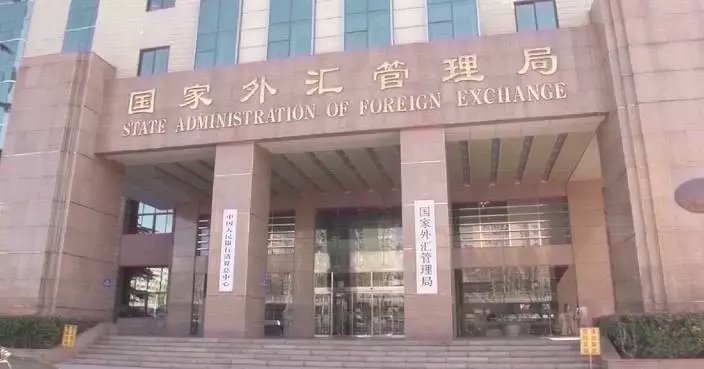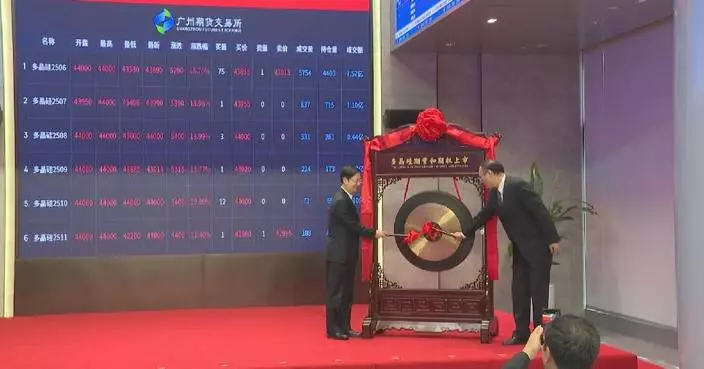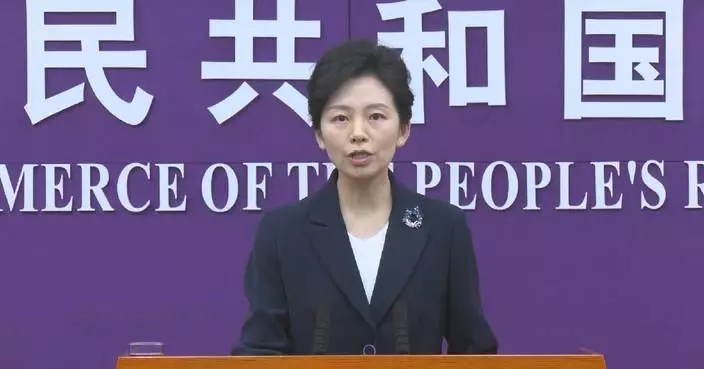A host of increment policies rolled out by China to shore up its property sector since late September have significantly improved market sentiment.
Early this year, the Chinese government launched the "white list" mechanism to provide financial support to eligible real estate projects as part of its efforts to stabilize the sector.
Under the mechanism, local governments recommend eligible real estate projects, based on the project status, developers' qualification, credit, and financial conditions, to financial institutions for speedy approvals of new loans to cash-starved developers to complete their projects.
One highlight of this policy lies in that it supports projects, rather than developers.
As of the end of November, a total of 3.6 trillion yuan (about 500 billion U.S. dollars) had already been approved in loans to whitelisted projects.
"The 'white list' mechanism aims to create a financing system based on projects, with a close-looped operation and supervision system. The mechanism can address risks of high-leverage, high-debt and high-turnover, which were associated with the previous model, and encourage developers to focus more on financial stability and regulatory compliance. This will also help regulatory authorities strengthen supervision and guard against risks at the source," said Yu Xiaofen, dean of the Chinese Academy of Housing and Real Estate of Zhejiang University of Technology.
Apart from the "white list" mechanism, the Chinese government has also implemented policies encouraging residents to trade in old houses for new ones in over 150 cities, to meet the need for housing improvement.
Originally launched in May in Huadu District of Guangzhou, south China, the trade-in policy in real estate sector soon spread nationwide, with many cities giving more housing subsidies.
In Jingmen, a city in central China's Hubei Province, the local government has recently introduced a new policy to subsidize those interested in purchasing new commercial housing in the central urban area. The policy, compounding talent recruitment incentives, household registration perks, childbirth allowances, tax exemptions, and the lift of limits on house numbers and size, brings a lot of benefits to homebuyers.
"The new policy benefits our projects a lot. After the policy is rolled out, my customers, who were not entitled for the subsidies and hesitated to purchase, now feel that buying a house is a very good deal," said Chen Jing, a real estate agent.
Industry insiders suggest that further efforts in the real estate "trade-in" program should focus on streamlining transaction processes and making it more convenient for the public.
"The transactions of resale and new houses involve numerous steps and processes. Local governments should work on streamlining these processes, whether through industry association efforts, business environment optimization, or bank support. By addressing these pain points and bottlenecks, I believe that the 'trade-in' program still has great potential," said Li Yujia, a principal researcher at the Guangdong Housing Policy Research Center.
The Chinese government has also expanded the shantytown renovation program this year and tasked it with reducing commercial housing inventory and promoting a new real estate development model.
In October, the Ministry of Housing and Urban-Rural Development announced to renovate one million more houses in shantytowns and dilapidated houses. A month later, the ministry, along with the Ministry of Finance, issued a circular on expanding the shantytown renovation program to nearly 300 cities from the previous 35 cities with a permanent urban population of over three million.
With 1.7 million houses in shantytowns and 50,000 dilapidated houses in 35 cities needing renovation, the new renovation plan will not only reduce property inventory and stimulate direct investment in construction and building materials, but also meet urgent demands for better housing.
"When addressing consumer demand, we must have comprehensive plans for both house purchasing and renting. Considering requirements for more safe, comfortable, green, and smart homes, we must promote the construction of quality housing and provide more good homes to meet the growing demand for improved housing," said Zhang Qiguang, vice president of the China Real Estate Association.

China's increment policies on property market significantly improve market sentiment









